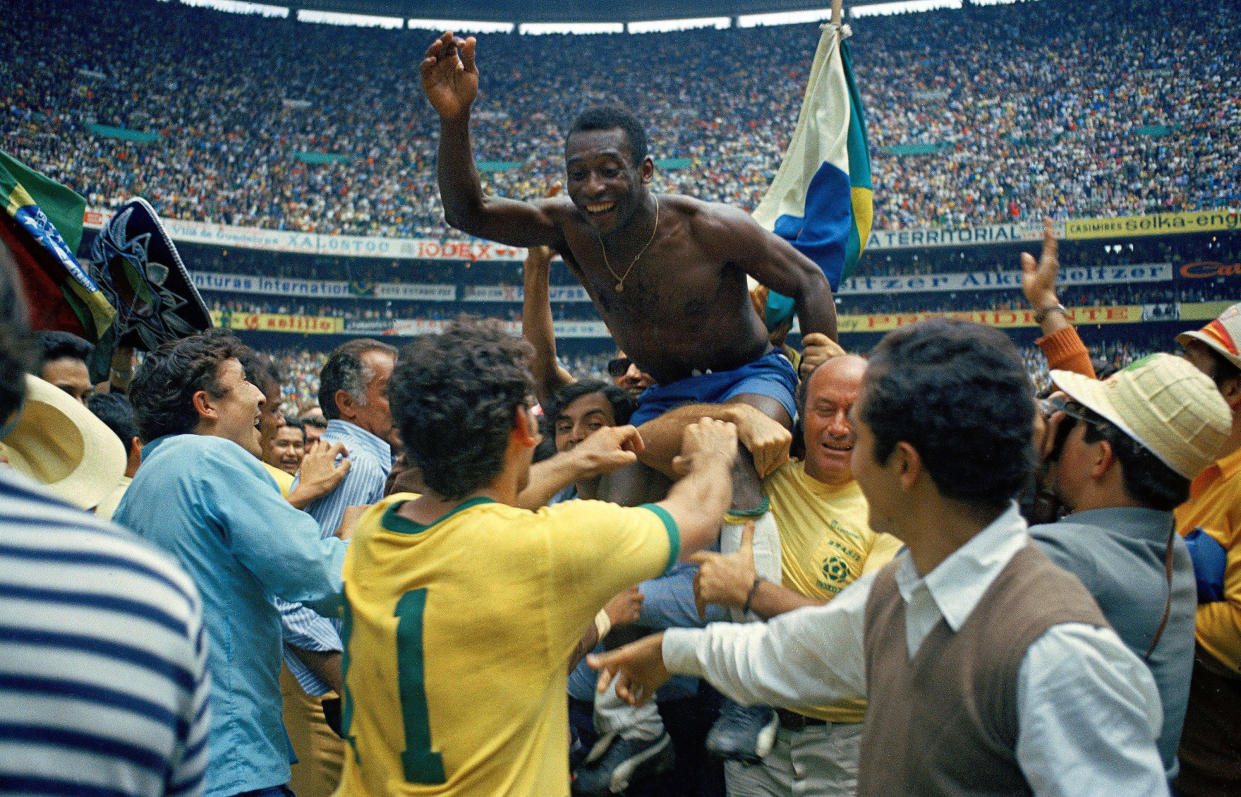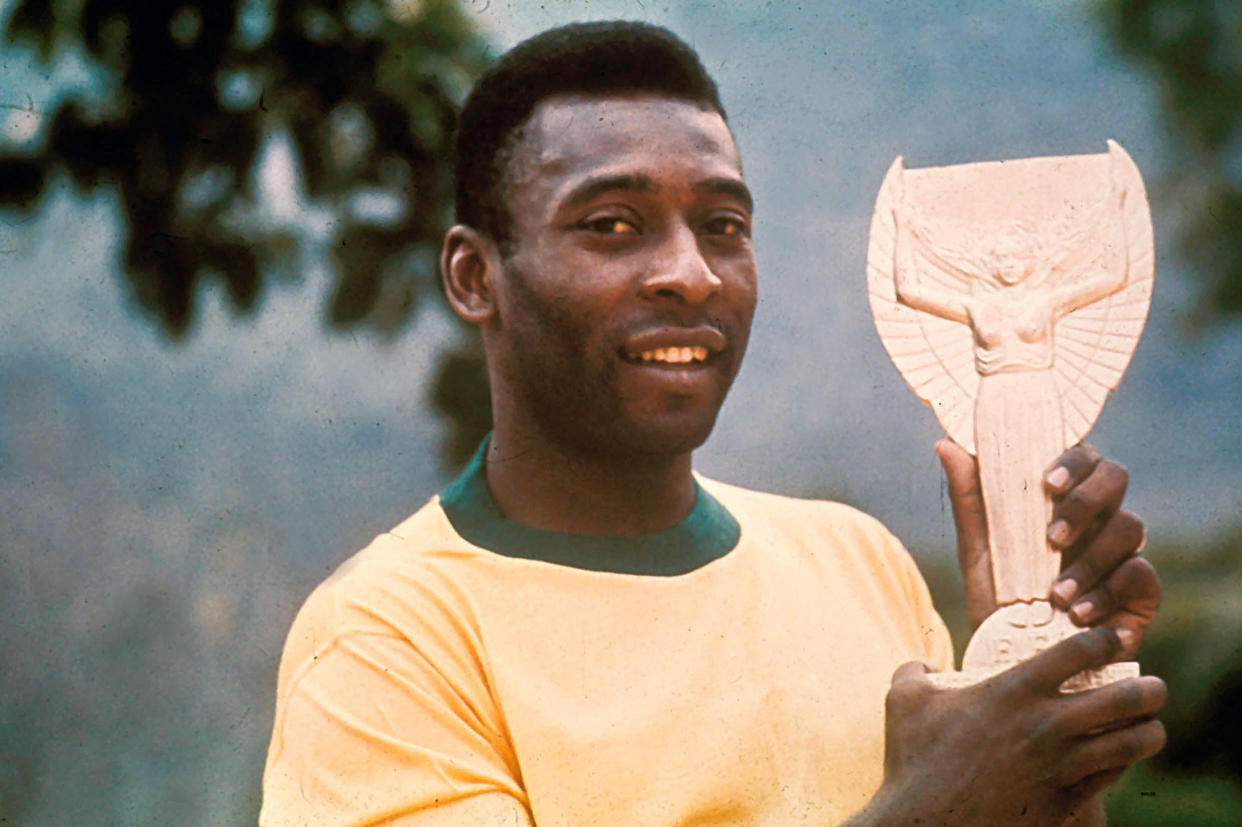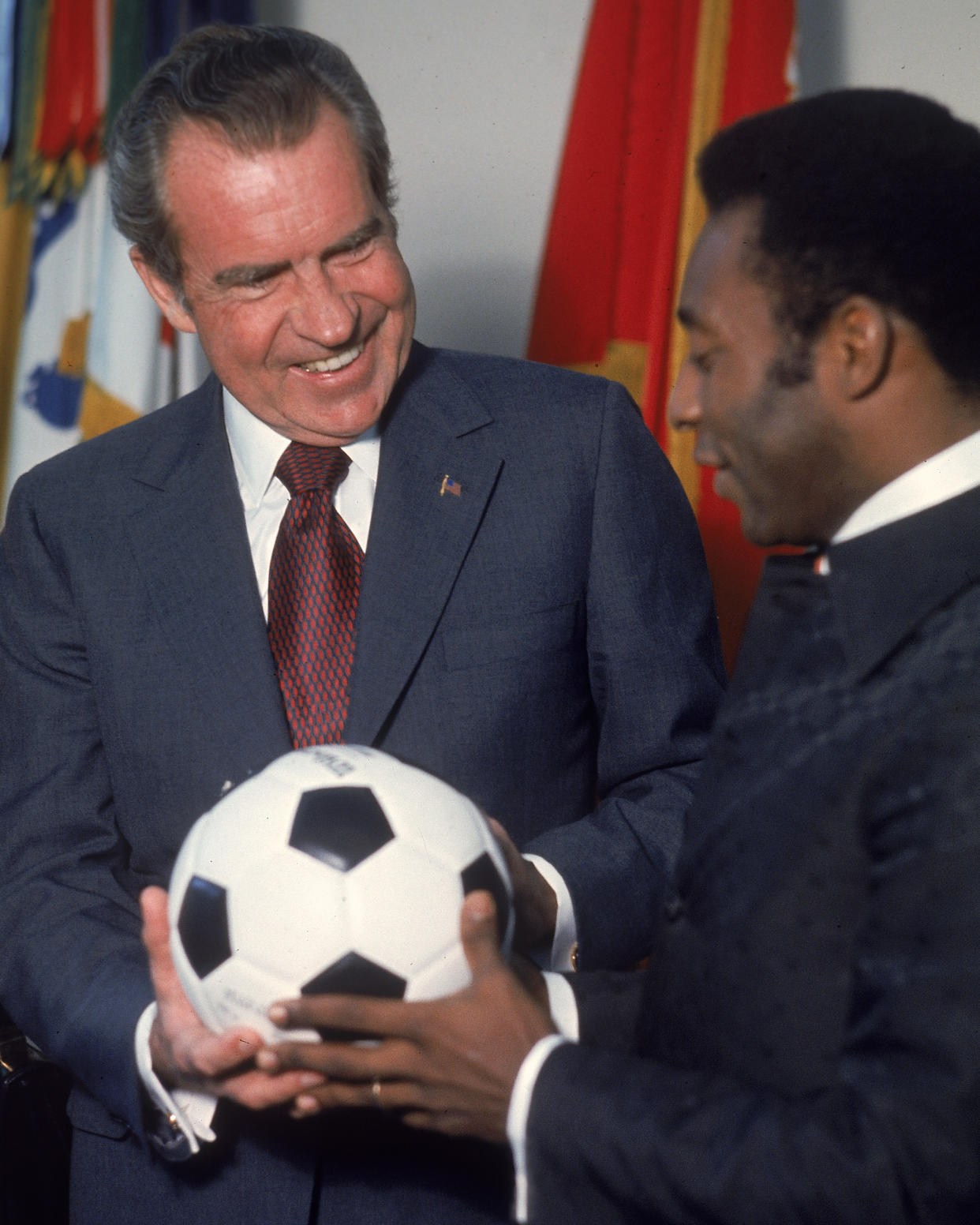Pelé, Brazilian soccer legend, dies at 82
Brazilian soccer icon Pelé, regarded as the sport’s greatest player whose wizardry on the pitch helped popularize it as “the beautiful game,” died Thursday following a yearlong bout with cancer. His daughter confirmed the death on Instagram.
“Everything we are is because of you. We love you infinitely. Rest in peace,” Kely Nascimento wrote.
Pelé was 82.
The Brazilian legend, whose real name was Edson Arantes do Nascimento, helped his country win the World Cup in 1958, 1962 and 1970 and remains the national team’s co-scoring leader with 77 goals in 92 matches.

Brazil’s current superstar, Neymar, tied him at the 2022 Qatar World Cup, scoring his 77th goal in 124 games.
Pelé became the World Cup’s youngest scorer in 1958 when he bagged a goal against Wales at the age of 17 years and 239 days, when the tournament was held in Stockholm. His record still stands, and to date, he is still the only player under 18 to score in a World Cup.
He would also help Brazil triumph in the 1962 tournament in Chile and, after injury ruled him out of the competition four years later in England, he lit up the Mexico World Cup in 1970.
Speaking to soccer’s governing body, FIFA, for Pelé’s 80th birthday tribute, Tarcisio Burgnich, an Italian defender in the final that year, admitted that he had struggled against the Brazilian star.
“I told myself before the game, ‘He’s made of skin and bones just like everyone else,’” he said. “But I was wrong.”
Pelé’s name and dominance on the pitch came to represent the sport itself.
While North Americans know the game as “soccer” and most of the globe as “football,” virtually everyone agrees it’s “the beautiful game” — or “o jogo bonito” to Brazilians and Portuguese.
While the exact origins of that phrase can be debated, its popularization can be traced to the 1977 biography “Pele, My Life and the Beautiful Game” by Pelé and Robert L. Fish.

Born into poverty in Brazil’s Minas Gerais state on Oct. 23, 1940, Pelé honed his skills playing with a grapefruit before he signed with the Brazilian team Santos at age 15.
He would go on to great success with the team, winning over 20 major titles, before he signed with the New York Cosmos in the fledgling North American Soccer League in 1975.
Pelé and the Cosmos played a key role in building the sport’s U.S. profile and popularity before he closed out his professional career in 1977.
The glamorous Cosmos, led by aging stars such as Pelé, Franz Beckenbauer and Giorgio Chinaglia, won Soccer Bowl ‘77 and along the way attracted some of the biggest crowds that had ever seen a soccer match on U.S. soil.
Pelé’s Cosmos defeated the Ft. Lauderdale Strikers in a playoff match before 77,691 fans at Giants Stadium in East Rutherford, New Jersey. It was the biggest crowd to ever see an NASL match.
The Guinness Book of World Records recognizes Pelé as having scored the most goals during a specified period with 1,279 in 1,363 games between Sept. 7, 1956, and Oct. 1, 1977.
Such was his acclaim that Pelé transcended the world of sport, becoming a recognizable figure even to those who did not follow the game. He rubbed shoulders with the likes of boxing’s Muhammad Ali, Rolling Stones singer Mick Jagger and pop artist Andy Warhol, who created a portrait of him.
“Pelé was one of the few who contradicted my theory: Instead of 15 minutes of fame, he will have 15 centuries,” Warhol said.

Pelé also was a regular White House visitor, gaining invitations from Presidents Richard Nixon, Gerald Ford, Jimmy Carter and Ronald Reagan.
In 1986 when Reagan invited Pelé for a state dinner in honor of Brazilian President Jose Sarney, he said, “My name is Ronald Reagan, I’m the president of the United States of America. But you don’t need to introduce yourself because everyone knows who Pelé is.”
After his soccer career ended Pelé starred in several movies including “Escape to Victory,” starring Sylvester Stallone and British actor Michael Caine, and several documentaries about his life.
But he was perhaps best known for his ambassadorial work with the United Nations in which he campaigned against the aggressive marketing of baby milk formulas and on environmental issues, among other causes.
In 1999, he was recognized as one of Time magazine’s “100 Persons of the Century.”
A supporter of various charities throughout his life, in 2018 he set up the Pelé Foundation to help impoverished children.
Married three times, Pelé confessed in a 2021 Netflix documentary named after him that he had so many affairs he didn’t even know how many children he had.
His seven known offspring include Sandra Machado, whom he refused to acknowledge even after a court-ordered DNA test proved that she was his daughter. She would go on to write the book “The Daughter the King Didn’t Want,” before she died in 2006 at 42.
Five other children — Kelly, 55; Edinho, 51; Jennifer, 43; and twins Joshua and Celeste, 25 — came from his first two marriages to Rosemeri dos Reis Cholbi and Assiria Lemos Seixas. His daughter Flavia Kurtz, 53, was born to Lenita Kurtz in 1968.
In 2016, Pelé married his third wife, Marcia Cibele Aoki, whom he described as his “definitive love” on social media.
Pelé had surgery to remove a colon tumor in September 2021 and had been checking in with The Albert Einstein hospital in the Brazilian city of Sao Paulo every month since.
The hospital said he was admitted late last month to regulate medication for an infection.
This story was first published on NBCNews.com.
This article was originally published on TODAY.com
